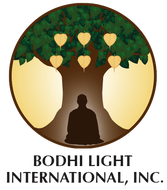 What is a Good Knowing Advisor? Why is the ability to recognize GKAs important? How Does One Recognize a GKA? The term, good knowing advisor (GKA) comes from the Chinese 善知識 (shàn zhi shì). When I first started teaching, I abbreviated it to wise advisor but later reverted back to GKA because it is more appropriate. What is a Good Knowing Advisor?
Let’s break it down so we can understand what the wise Chinese patriarchs meant. Good 善 (shàn): This points out that the person is:
Goodness is clearly defined by the Buddhist precepts (rules of morality). For example, a good person does not tell lies, does not steal from others, and does not indulge in acts of killing (even for sport). Goodness transcends cultural, temporal, and individual definition limits. For example, what is good in Africa must also be good in Latin America, in all times, and independent of individual interpretations. Knowing 知 (zhi): Knowledge comes with study. A knowledgeable person has invested time in the learning process. For example, the Sanghans of old were required to study the Buddhist moral precepts for five years, before they were allowed to learn Buddhist teachings or practice meditation. Today, however, novice left home people rarely invest much time in the study of Buddhist precepts, therefore, leaving them less qualified to be a GKA. Advisor 識 (shì): while knowing refers to internal development, advisor is its external counterpart. An advisor is able to recognize where you are and wisely direct your progress on your personal dharma path. Without the wisdom to perceive your personal environment and your personal mental and spiritual condition, an advisor cannot be very useful. In short, a GKA is a good person who knows what is best for you. Why is the ability to recognize GKAs important? This is a distinguishing characteristic of Mahayana cultivation. Cultivators with superior blessings tend to encounter teachers who urge them to look for good knowing advisors who can guide them in their practice. Why? If you are already wise and sure of yourself, there is no need for cultivation or a GKA. On the other hand, if you sometimes find yourself unable to cope with life’s complexities and pressures, you may want to consider cultivation. Cultivation enables you to contemplate challenges and difficulties from another perspective, making solutions apparent, thus improving the quality of your life. Further, Mahayana cultivation stresses the importance of learning under a GKA because:
Frankly, we should seek out GKAs until we reach Fourth Stage Arhatship. Until then, we can go astray and not even know it. In fact, many higher level cultivators prefer to cultivate under the direction and guidance of a GKA. How Does One Recognize a GKA? My late teacher, Great Master Xuan Hua who founded the Dharma Realm Buddhist Association was often asked this question. His answer was that GKAs are not greedy for:
I have also asked this question over the years and often pondered my teacher’s answers. Today, I’ll add a few more to help those of you who are sincerely looking for GKAs.
The more you learn about Mahayana, the more you’ll know how to recognize them. I’ve enumerated just a few points to help you get started. When you do find a GKA, please let me know so that I too have the opportunity to learn from a good and wise teacher. |
|
RELATED LINKS© 2010 – 2023 Chanpureland.org
|
SubscribeJoin our mailing list today!
|

 RSS Feed
RSS Feed